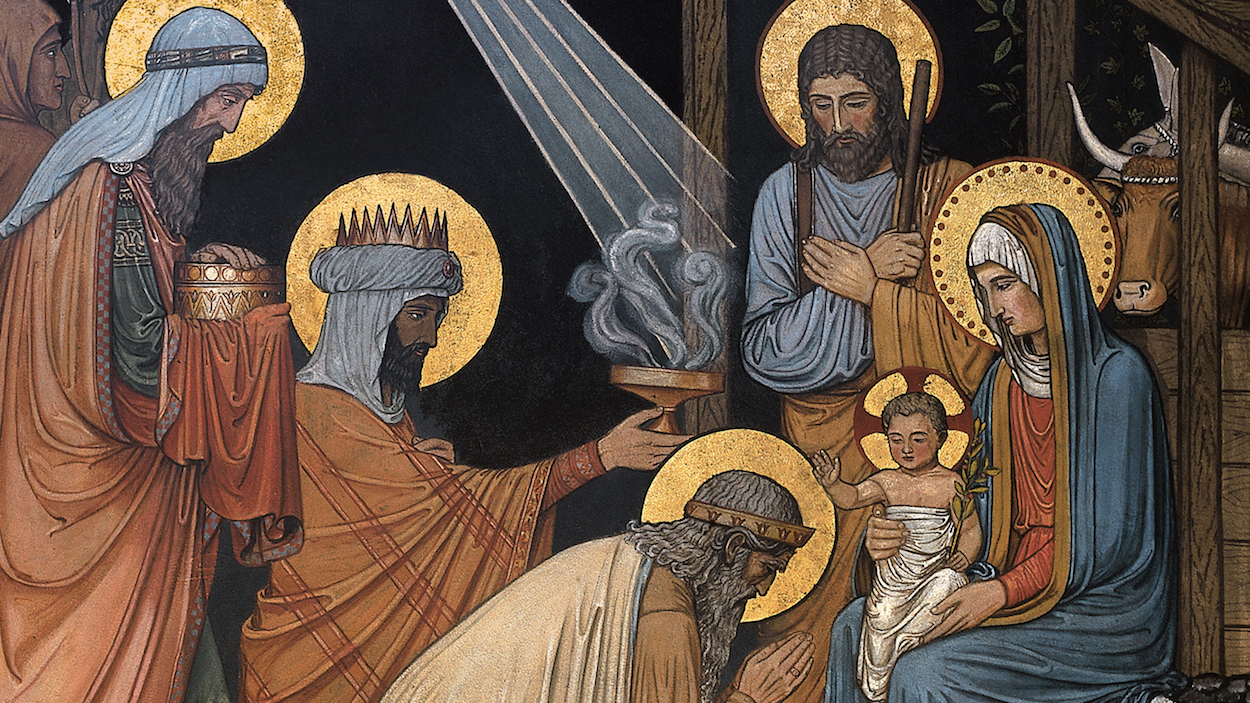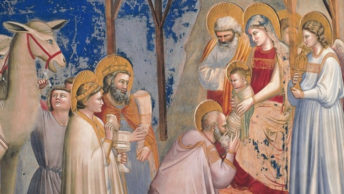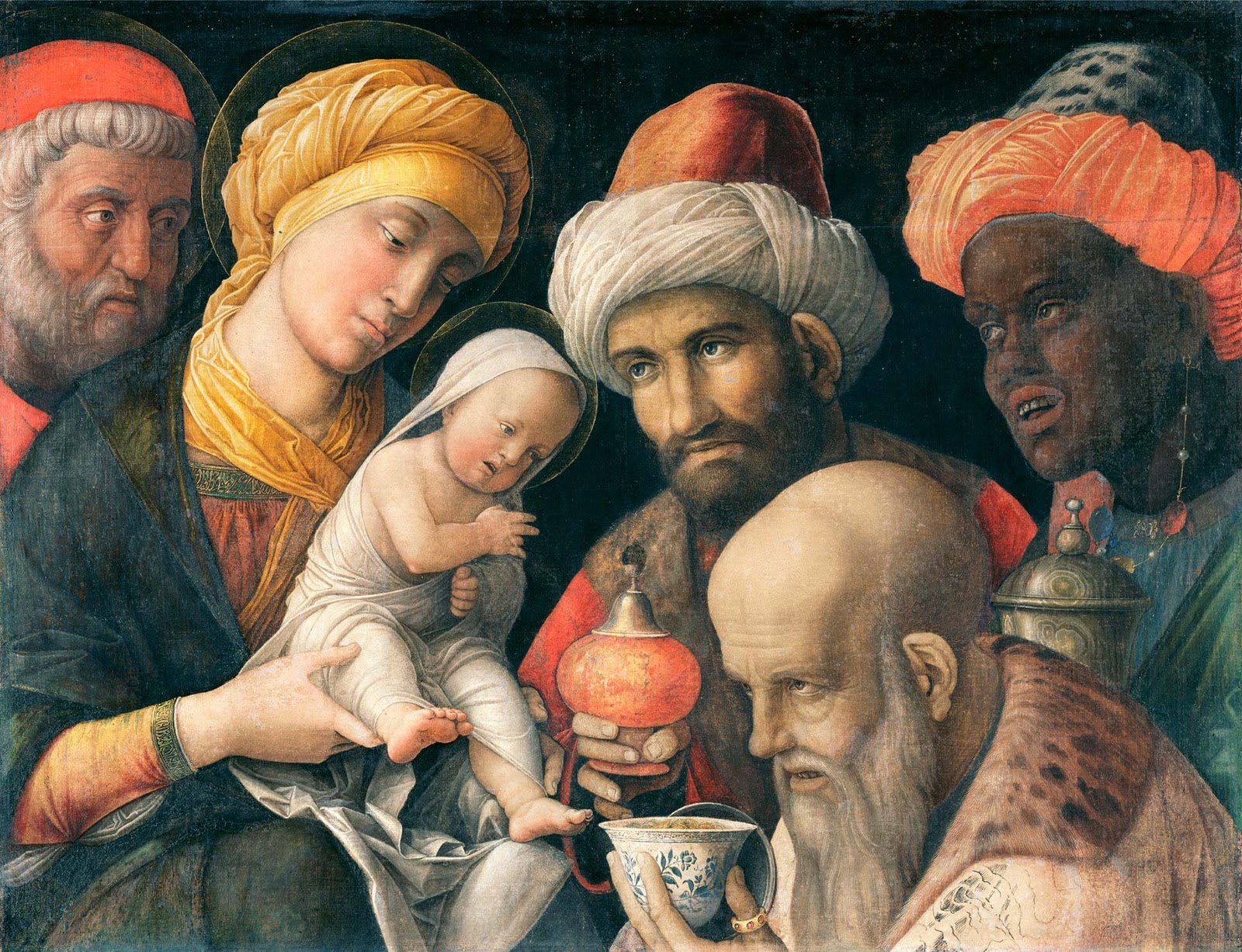The Epiphany of our Lord is one of the most ancient and solemn feasts of the liturgical calendar. That, right there, could be the reason why it is a feast that risks being celebrated without having us personally affected by the Word that the Church chooses for this day.
Let me prove it to you very simply. What do you think of when you hear the word “Epiphany? The three astrologers coming from the East to worship Jesus and to pay him homage. Right? What song do we sing in Church? “We three kings.” Right?
We focus our attention on the magi. We wonder who they were, we think that there were three of them, and we let our imagination run free in picturing what Matthew describes in the Gospel (2:1-12).
So, at best, we wind up recalling a story of long ago and, by focusing only on the gospel and ignoring the 1st (Is 60:1-6) and 2nd (Eph 3:2-3, 5-6) readings, we get an incomplete picture of the celebration. We also miss its enormous significance and challenge.
It stands to reason, therefore, that we cannot revert to our childhood and be content with this heartwarming story, when, even a brief overview of the readings demands our direct involvement. Even before we leave the Gospel passage and focus on the other two readings, we might want to dwell on a troubling deduction: We ought to find out if the practice of our religion is open to change, inner, radical change, on its way to becoming faith or whether our religious practice is done in a spiritual vacuum for an hour or so on Sunday and whenever we decide to pray.
Look at Herod and the citizen of Jerusalem, the holiest city ever. Here we have a king who made a name for himself by remodeling and beautifying extensively the Temple of Jerusalem and we also have the haughty citizens of the city God had chosen for His dwelling who get thoroughly disturbed and upset over God acting as God!
The following words: …When King Herod heard this, he was greatly troubled and all Jerusalem with him… tell a tale of a tragic mistake. All the people of Jerusalem, king included, were praying to and worshipping the wrong god, a god who was not expected to intervene directly, forcefully in their lives and change them!
Let me tell you quite bluntly that we better not repeat their mistake. If we realize that our religious practice is not leading us to genuine faith by our inner disposition to a continuous, sweeping openness to change we live the ultimate delusion.
For the true God is the One Who says: “Behold, I make all things new”! Without this openness to change the way Abraham was called to change at the time his “religion” turned to faith, we are ill prepared to celebrate the Epiphany of our Lord.
To open up to a God not of our choosing, not for our convenience, is very risky and tremendously unsettling. But this is precisely the main thrust of this Celebration.
The magi are an eloquent example of daring changes: for them the message that reshaped their life was in a unique star. Now, that is not much to go on; is it? Especially if the change is so earthshaking that it involves a long journey across uncharted lands and openness to a God still unknown.
We cannot expect God to send us an angel to tell us to move away from our comfort zone and our favored religious practices and into openness to His leads and demands. He talks to us through His Word; He makes His will known whenever we place ourselves in a listening, silent mode; He nudges us on through uneventful, ordinary happenings.
If we are ready to contemplate this possibility, we can move on also to consider that the only true God expects of us to feel comfortable with His expansion plan. (Eph 3:2-3, 5-6)
Mind you, it is not that we, in our fears and prejudices could stop the expansion plan of His global Family, but that He desires ardently to have us as His open-minded, generous, cheerful children celebrating together with countless other ones from all ages and all corners of the world.
That implies a gigantic sacrifice on our part, the same sacrifice that He required of His first chosen people of old, the Hebrews. And that is that we are OK with having Gentiles as coheirs with us, members of the same Body with us, copartners in the promise in Christ Jesus through the Gospel which is God’s free gift to all.
In other words, I am called to shift from a stance of judgment on others that look different from me to one of acceptance and shared enjoyment in the universal Family of God.
And finally, my willingness to change will help me accept the concept that I am a son, a daughter of the New Jerusalem (Is 60:1-6)), the Church, the Body of Christ, journeying from afar to the Kingdom and expected to bring all the gifts, and I mean all the gifts that God has given me to share with others and thus increase the radiance of the Church.
With this openness we will enable the Epiphany of the Lord to have a profound impact on us and our journey can begin in a few moments with our humble reception of the Bread of Life, the Bread for such a journey.








